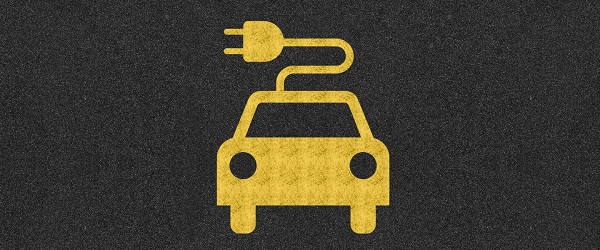Automotive
Governments continue to support irrational ‘electric vehicle’ policies

From the Fraser Institute
Another day, another electric vehicle (EV) fantasy failure. The Quebec government is “pulling the plug” on its relationship with the Northvolt EV battery company (which is now bankrupt), and will try to recoup some of its $270 million loss on the project. Quebec’s “investment” was in support of a planned $7 billion “megaproject” battery manufacturing facility on Montreal’s South Shore. (As an aside, what normal people would call gambling with taxpayer money, governments call “investments.” But that’s another story.)
Anyway, for those who have not followed this latest EV-burn out, back in September 2023, the Legault government announced plans to “invest” $510 million in the project, which was to be located in Saint-Basile-le-Grand and McMasterville. The government subsequently granted Northvolt a $240 million loan guarantee to buy the land for the plant, then injected another $270 million directly into Northvolt. According to the Financial Post, “Quebec has lost $270 million on its equity investment… but still had a senior secured loan tied to the land acquired to build the plant, which totals nearly $260 million with interest and fees.” In other words, Quebec taxpayers lost big.
But Northvolt is just the latest in a litany of failure by Canadian governments and their dreams of an EV future free of dreaded fossil fuels. I know, politicians say that it’s a battle against climate change, but that’s silly. Canada is such a small emitter of greenhouse gases that nothing it could do, including shutting down the entire national economy, would significantly alter the trajectory of the climate. Anything Canada might achieve would be cancelled out by economic growth in China in a matter of weeks.
So back to the litany of failed or failing EV-dream projects. To date (from about 2020) it goes like this: Ford (2024), Umicore battery (2024), Honda (2025),General Motors CAMI (2025), Lion Electric (2025), Northvolt (2025). And this does not count projects still limping along after major setbacks such as Stellantis and Volkswagen.
One has to wonder how many tombstones of dead EV fantasy projects will be needed before Canada’s climate-obsessed governments get a clue: people are not playing. Car buyers are not snapping up these vehicles as government predicted; the technologies and manufacturing ability are not showing up as government predicted; declining cost curves are not showing up as government predicted; taxpayer-subsidized projects keep dying; the U.S. market for Canada’s EV tech that government predicted has been Trumped out of existence (e.g. the Trump administration has scrapped EV mandates and federal subsidies for EV purchases); and government is taking the money for all these failed predictions from Canadian workers who can’t afford EVs. It really is a policy travesty.
And yet, like a bad dream, Canada’s governments (including the Carney government) are still backing an irrational policy to force EVs into the marketplace. For example, Ottawa stills mandates that all new light-duty vehicle sales be EVs by 2035. This despite Canadian automakers earnest pleas for the government to scrap the mandate.
Canada’s EV policy is quickly coming to resemble something out of dysfunctional-heroic fiction. We are the Don Quixotes, tilting futilely at EV windmills, and Captain Ahabs, trying to slay the dreaded white whale of fossil-fuelled transportation with our EV harpoons. Really, isn’t it time governments took a look at reality and cut their losses? Canada’s taxpayers would surely appreciate the break.
Automotive
Big Auto Wants Your Data. Trump and Congress Aren’t Having It.


From the Daily Caller News Foundation
Congress is not going to allow Big Auto to sideline consumer privacy and safety while getting subsidized massively by the federal government.
That is because, in late September, by an overwhelming vote of 50 to 1, Chairman Brett Guthrie’s (R-KY) House Energy & Commerce Committee joined the Senate Commerce, Science, and Transportation Committee in passing the AM Radio for Every Vehicle Act.
This legislation is in response to some automakers removing AM radios from new model vehicles despite pleas from America’s public safety community not to do so.
Dear Readers:
As a nonprofit, we are dependent on the generosity of our readers.
Please consider making a small donation of any amount here.
Thank you!
“They’d rather force consumers to use their infotainment devices — which collect and sell their third-party data — than protect American lives,” Corey Lewandowski, President Trump’s 2016 campaign manager and senior adviser to his 2020 and 2024 campaigns, stated.
The entirety of America’s public safety community spanning the federal, state, and local levels, insists AM radio remaining in cars is critical for protecting the nation’s emergency alerting systems. These systems rely heavily upon AM radio, the only communication method that has stayed reliably accessible during many disasters such as the Sept.11 terrorist attack and major disasters like Hurricanes Katrina, Sandy, and most recently, Helene.
Brendan Carr, the current chairman of President Trump’s FCC, nominated by President Trump, has also endorsed the AM Radio for Every Vehicle Act. In a statement, Carr said that “millions of Americans depend on the value of AM radio and the local news that AM broadcasters offer in communities across the country.” He also recounted hearing firsthand stories of Hurricane Helene victims who “could only access lifesaving information in the days following the storm by tuning into their AM radios.”
AM radio also serves another purpose that the elites in Silicon Valley and Detroit often forget: it keeps rural and working-class America connected. Millions of people outside the big cities rely on AM for local news, farm reports, weather alerts, and even community events. For many small towns, AM stations are a lifeline—far more reliable than expensive streaming services or spotty cell coverage. Pulling it out of cars is yet another way of telling Middle America: “you don’t matter.”
Of course, no good idea in Washington is safe from special interests.
Despite the broad support within Congress, the administration, and throughout the public safety and first responder communities, the bill has faced a full-court press by the musicFIRST Coalition — a group backed by the Recording Industry of America — to tank the legislation unless it is tied to unrelated music royalty reform legislation. That’s cronyism politics at its worst—holding public safety hostage to squeeze out another payday.
However, now that the AM Radio for Every Vehicle Act has passed both committees by overwhelming margins, the only stop left for the legislation is the House and Senate Floor — meaning Speaker Mike Johnson (R-LA) and House Majority Leader John Thune (R-SD) must call it up for a roll call vote.
At the heart of this fight is more than just whether a radio dial stays in your dashboard. It’s about whether Americans can trust that their safety won’t be sacrificed for corporate profit.
It’s also about data privacy. Automakers and Big Tech are eager to funnel drivers into infotainment systems that monitor every move, harvest personal information, and sell it to the highest bidder. AM radio doesn’t spy on you. It doesn’t crash when the grid goes down. It doesn’t put profit ahead of people. It just works.
For the sake of both public safety and personal freedom, Congress should make sure it stays that way.
Ken Blackwell (@KenBlackwell) is an adviser to the Family Research Council and a chair at the America First Policy Institute. He is a former Mayor of Cincinnati, Ohio, Ohio Treasurer and Secretary of State, and U.S. Ambassador to the United Nations Human Rights Commission. He is also a former member of the Trump transition team.
Automotive
Canada’s EV subsidies are wracking up billions in losses for taxpayers, and not just in the auto industry

By Dan McTeague
To anyone who thought that the Liberals’ decision to postpone enforcement of their Electric Vehicle (EV) mandate by one year was part of a well-thought-out plan to get that disastrous program back on track, well, every day brings with it news that you were wrong. In fact, the whole project seems to be coming apart at the seams.
Here’s the latest crisis Mark Carney and his carnival of ideologues are having to deal with. Late last year, the Liberal party instituted a 100% tariff on Chinese-made EVs. The idea was to protect the Canadian EV industry from China dumping their vehicles into our country, at prices far lower than Canadian companies can afford due to their massive state subsidies. This has been a major problem in the EU, which is also attempting to force a transition to EVs.
But Beijing wasn’t going to take that lying down. Taking advantage of Western environmentalist sentiment is an important part of their economic plans — see, for instance, how they’ve cornered the global solar panel market, though the factories making them are powered by massive amounts of coal. So they retaliated with a 75% duty on Canadian canola seed and a 100% tariff on canola oil and canola meal.
This was big enough to really hurt Canadian farmers, and Ottawa was forced to respond with more than $300 million in new relief programs for canola producers. Even so, our farmers have warned that short-term relief from the government will do little if the tariffs are here for the long-term.
With pressure on Carney mounting, his Industry Minister Melanie Joly announced that the government was “looking at” dropping tariffs on Chinese EVs in the hope that China would ease off on their canola tariffs.
That may be good news for canola producers, but how about the automotive companies? They’ve grown increasingly unhappy with the EV mandate, as Canadian consumers have been slow to embrace them, and they’ve been confronted with the prospect of paying significant fines unless they raise prices on the gas-and-diesel driven vehicles which consumers actually want to make the EVs that they don’t really want more attractive.
That’s the context for Brian Kingston, CEO of the Canadian Vehicle Manufacturers’ Association, saying that dropping these tariffs “would be a disaster.”
“China has engaged in state-supported industrial policy to create massive overcapacity in EV production, and that plan is coming to fruition now,” Kingston said. “When you combine that with weak labour and environmental standards, Chinese manufacturers are not competing with Canadian, American, or Mexican manufacturers on a level playing field. We simply cannot allow those vehicles to be dumped into the Canadian market.”
The auto manufacturers Kingston represents are understandably upset about suddenly having to compete with underpriced Chinese EVs. After all, with the government forcing everyone to buy a product they really don’t want, are most people going to patriotically pay more for that product, or will they just grab whichever one is cheaper? I know which one I think is more likely.
And then there’s a related problem — the federal and provincial governments have “invested” somewhere in the neighborhood of $52.5 billion to make Canada a cog in the global EV supply chain. In response to Joly’s announcement, Ontario Premier Doug Ford, who has gone “all in” on EVs, wrote an open letter to the prime minister saying that canceling the tariffs would mean losing out on that “investment,” and put 157,000 Canadian automotive jobs at risk.
Now, it’s worth noting that automakers all over Ontario have already been cutting jobs while scaling back their EV pledges. So even with the tariffs, this “investment” hasn’t been paying out particularly well. Keeping them in place just to save Doug Ford’s bacon seems like the worst of all options.
But it seems to me that the key to untangling this whole mess has been the option I’ve been advocating from the beginning: repeal the EV mandate. That makes Canada less of a mark for China. It benefits the taxpayers by not incentivizing our provincial and federal governments to throw good money after bad, attempting to subsidize companies to protect a shrinking number of EV manufacturing jobs.
The heart of this trade war is an entirely artificial demand for EVs. Removing the mandate from the equation would lower the stakes.
In the end, the best policy is to trust Canadians to make their own decisions. Let the market decide.
Support Dan’s Work to Keep Canadian Energy Affordable!
Canadians for Affordable Energy is run by Dan McTeague, former MP and founder of Gas Wizard. We stand up and fight for more affordable energy.
-

 COVID-192 days ago
COVID-192 days agoDevastating COVID-19 Vaccine Side Effect Confirmed by New Data: Study
-

 Red Deer10 hours ago
Red Deer10 hours agoThe City of Red Deer’s Financial Troubles: Here Are The Candidates I Am Voting For And Why.
-

 Business2 days ago
Business2 days agoCanada Post is failing Canadians—time to privatize it
-

 Business2 days ago
Business2 days agoGovernment distorts financial picture with definition of capital
-

 COVID-191 day ago
COVID-191 day agoConservative MP slams Freedom Convoy leaders’ sentencing as ‘political persecution’
-

 Daily Caller1 day ago
Daily Caller1 day ago‘We’re Really, Really Close’: Freed Gaza Hostages, Relatives Have High Hopes For Trump’s Peace Plan
-

 Business2 days ago
Business2 days agoFinance Minister ducks deficit questions, talks down to critics, and rebrands reckless spending as ‘transparency’.
-

 Daily Caller1 day ago
Daily Caller1 day agoMan charged with starting Palisades Fire in L.A.








